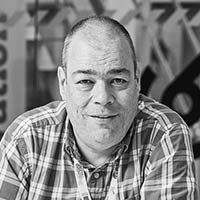Manchester Met and Cisco launch an IoT ‘makerspace’ thingQbator to support digital creative talent

Maria Hernandez of Cisco
Cisco and Manchester Metropolitan University, together with The Foundation for Digital Creativity announced the launch of thingQbator, an on-campus IoT Makerspace to help fuel the digital talent pipeline in the city.
Cisco thingQbator is a network of makerspaces with partner universities. The community driven innovation labs allow students from all backgrounds and degree courses to get hands-on with technology and turn IoT ideas into working prototypes.
thingQbator aims to enable students to learn by doing, and to provide local digital solutions for local problems. Students in the first cohort of thingQbator Manchester came together to explore solutions for urban challenges. Groups used field trials across the city to collect and innovate with data. Individual project goals included reducing social isolation, improving air quality, app development with an ethical carbon footprint and wearables to highlight the interrelationship between urban planning and smart cities.
The collaboration with Manchester Metropolitan University is being supported by the Foundation for Digital Creativity. The programme provides students with tools, training, mentoring and advice to help them make their ideas a reality and help nurture and encourage entrepreneurship.
Maria Hernandez, head of Innovation, Cisco UK & Ireland said: “Manchester is a hub of innovation with an important role to play in driving digitisation in the UK. We’re excited to be continuing our collaboration with Manchester Metropolitan University as it cultivates the business ideas and entrepreneurs of the future. thingQbator quite literally helps to bring the biggest and brightest ideas to life in IoT prototypes.”

Paul Bason
Paul Bason, director of Innovation at Manchester Metropolitan University, said: “This partnership with Cisco and the Foundation for Digital Creativity is important in developing new opportunities for students working with new technologies. We see that working more closely with business and creating project-based learning across discipline boundaries will be an important aspect of university teaching for the future.”
“At Manchester Met we are intending to grow our capacity in this area through our £35m (€40.3m) investment in the School of Digital Arts (SODA) – this new school is due to open in 2021 and will teach the next generation of technologists and content producers.”
Dr Andrew Robinson, co-founder of Foundation for Digital Creativity, said “This is a great opportunity in our mission to democratise IoT; a chance to empower a diverse background of people to improve the world through connected, digital technology”.
Today’s announcement is the latest example of Cisco’s commitment to support digitisation in the UK. Cisco’s Country Digital Acceleration (CDA) strategy is a long-term partnership with government, industry and academia to deliver real outcomes faster and more effectively for the country.
Over the past two years, Cisco has led several collaborative initiatives to help solve challenges and drive opportunities in Greater Manchester. These includes the opening of its Mi-IDEA Innovation Centre in partnership with MSP in 2017, and its lead role in CityVerve, the UK’s smart city demonstrator created in Manchester, to help solve challenges across health & social care, energy & environment, travel & transport and culture & public realm.
Comment on this article below or via Twitter @IoTGN
